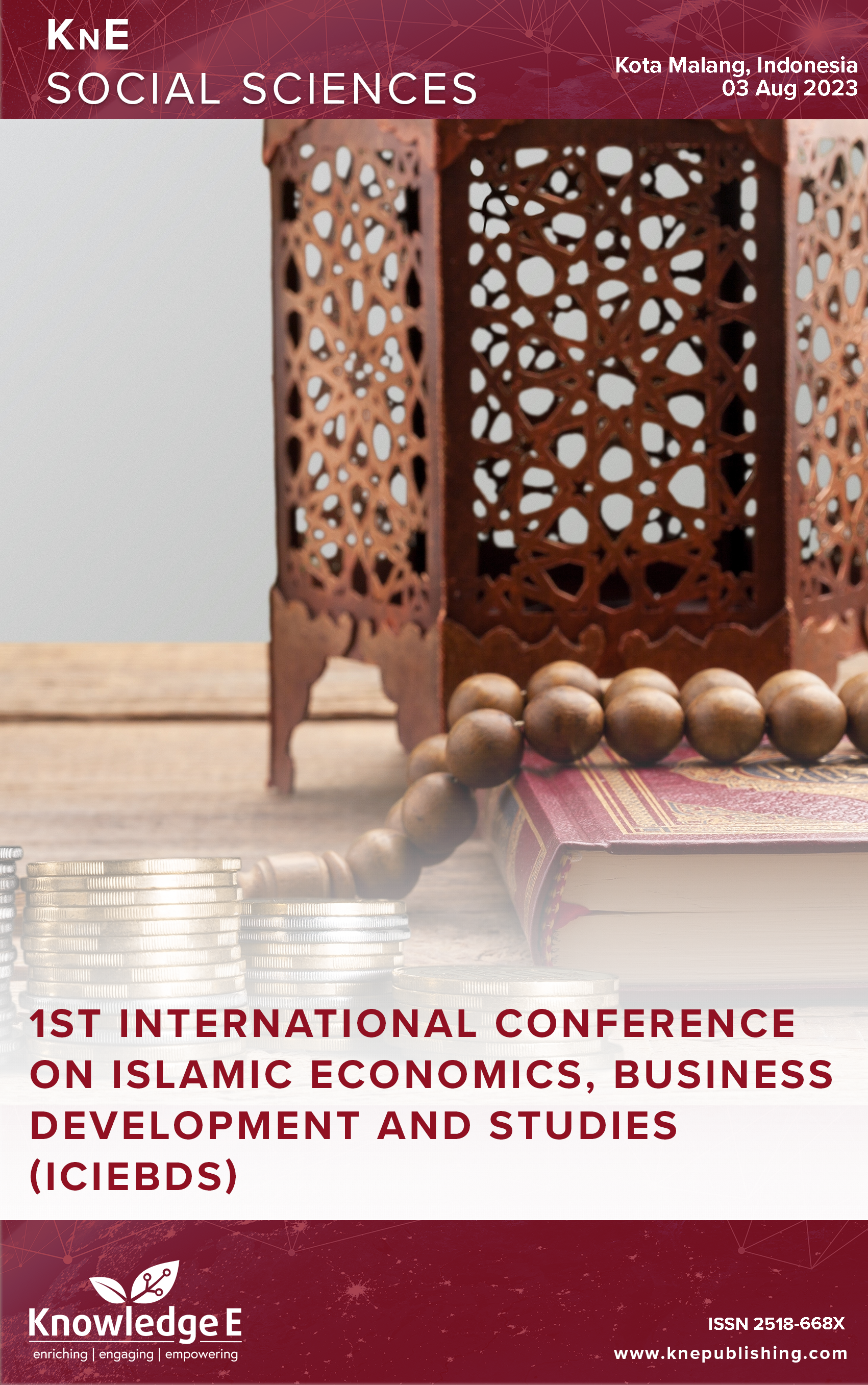The Role of Waqaf and Zakat as Fiscal Policy Instruments in Indonesia
DOI:
https://doi.org/10.18502/kss.v9i16.16245Abstract
The role of zakat and waqf is huge in terms of helping the poor in Indonesia as they have many benefits if we implement them. The alternative and strategic solution offered by Islam is none other than a productive and creative zakat management (distribution and utilization) system. With the management as intended, it is hoped that it can empower the poor to become Aghniya (the rich) and make Mustahiq become muzakki. Likewise, waqf has many benefits, especially in terms of helping the poor to improve their welfare. Therefore, this study aims to examine the role of waqf and zakat as instruments of fiscal policy in Indonesia. The research was conducted using qualitative methods and the technique used by researchers was the library research method. The library method is research conducted by reading articles from journals as well as data from the Central Bureau of Statistics and the Indonesian Waqf Board using a literature review. The data used is time series data and the time of this research was between 2019 and 2022. Data sources were obtained from BAZNAS (National Amil Zakat Agency), BPS (Central Statistics Agency), and BWI (Indonesian Waqaf Agency). The results of the study show that waqf and zakat in a country’s macro-economy are very significant as fiscal policy instruments, positive impacts in various fields, especially economic and social in Indonesia, especially in increasing aggregate consumption to increase the country’s income level.
Keywords: waqaf, zakat, fiscal policy
References
Budiman MA. The significance of waqf for economic development. J. Equilib. 2014;2(1):19–34.
Suhendi H. Fiqih Muamalah. Jakarta: PT Raja Grafindo; 2016.
Ali KM, Yuliani M, Mulatsih S, Abdullah Z. “Aspek-aspek prioritas manajemen wakaf di Indonesia,” AL-FALAH J. Islam. Econ. 2018;3(1):1–28. DOI: https://doi.org/10.29240/jie.v3i1.345
Tim Penyusun Hasil Indeks Wakaf Nasional, “Hasil Pengukuran Indeks Wakaf Nasional tahun 2022,” 2022.
P. Utami, T. Suryanto, R. A. Ghofur, and M. Nasor, “Refleksi Hukum Zakat Digital Pada BAZNAS dalam Rangka Peningkatan Kesejahteraan Mustahik,” J. Surya Kencana Satu Din. Masal. Huk. dan Keadilan, vol. 11, no. 1, pp. 53–70, 2020. https://doi.org/10.32493/jdmhkdmhk.v11i1.5608. DOI: https://doi.org/10.32493/jdmhkdmhk.v11i1.5608
Basrowi B, Utami P, Ali J, Salleh MS. Supply Chains In Indonesia Facing Virus Corona (COVID-19): Models Innovation And Obstacles Faced. Bina Bangsa Int. J. Bus. Manag. 2021;1(1):1–12. DOI: https://doi.org/10.46306/bbijbm.v1i1.1
Utami P. Basrowi, and M. Nasor. The Role of Digital Zakat Towards Economic Development at Slums in Indonesia. 2021;11:45–51.
Utami P, Suryanto T, Nasor M, Ghofur RA. The Effect Digitalization Zakat Payment Against Potential of Zakat Acceptance in National Amil Zakat Agency. Iqtishadia. 2020;13(2):216. DOI: https://doi.org/10.21043/iqtishadia.v13i2.7809
Hadi R, Shafrani YS, Hilyatin DL, Riyadi S, Basrowi B. Digital zakat management, transparency in zakat reporting, and the zakat payroll system toward zakat management accountability and its implications on zakat growth acceleration. Int. J. Data Netw. Sci. 2024;8(1):597–608. DOI: https://doi.org/10.5267/j.ijdns.2023.8.025
Al-Zarqa MA. An Islamic perspective on the economics of discounting in project evaluation. Quill Publishers; 1992.

